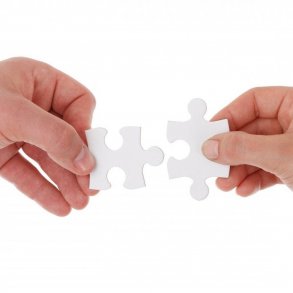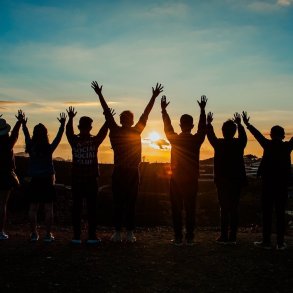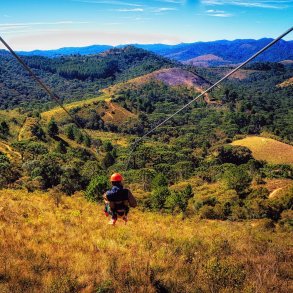By Sahana Chattopadhyay and originally published on medium.com
Exploring the inner alignment and wholeness so necessary to lead with courage and compassion.
Sahana Chattopadhyay has further explored the theme of Leading in Uncertain Times: Uncertainty is not a Threat and Best Leadership Qualities and Leadership as a Quest.
Video 15 minutes 30 seconds
Tomas Bjorkman at Sime Consciousness 2017 makes a crucial point
“…if the Industrial Revolution was based on an acceptance of our limited knowledge of our outer world, and it was through that acceptance and our curiosity about the outer world that we discovered new continents and were able to put a man on the moon.
“Now I think that the revolution of our time is also about acceptance — this time about accepting the fact that we have very limited knowledge about our inner world.
“I think that that acceptance of our limited knowledge of our inner world and the discoveries that will come from that will be the major step forward for Humanity in our century. So, to move from the old paradigm into the new paradigm, we first have to surrender.
“We have to surrender to the fact that we are not fully developed, that we are on a constantly developing path both as a society and as individuals. And when we have accepted that, being in touch with ourselves will be a never-ending meditation both to raise our awareness to grow and hopefully to become more human.”
Being a leader today requires us to accept that we have very limited knowledge of our inner world. And it is this acceptance that lays the foundation of true leadership. It is this awareness and quest which will be the key differentiator between the creation of a regenerative culture as opposed to a degenerative one.
The Planet is in turbulence and turmoil on all fronts from climate crisis and collapsing social order to stagnant economies and disenchanted employees. As Leonard Cohen describes:
The blizzard of the world has crossed the threshold and it has overturned the order of the soul.
It’s amidst this blizzard that leaders have to don the mantle of true leadership, that organizations can — with intention and purpose — have a healing impact. This is what I emphasized in my earlier article, Leading in Uncertain Times.
In this piece, I want to emphasize the inner journey a leader needs to take to step into their wholeness and embrace uncertainty and chaos with grace, equanimity, and compassion. Words like compassion, courage, conviction, and commitment are much bandied about today — especially in the space of leadership.
If we hold these words with attention and reverence, we will see that they encompass qualities that are foundational to being human and yet inordinately difficult to practice in the face of collapse, chaos, and complexity. Yet, these are the very qualities that we have to root within and find.
Detour
I do not mean leadership in the hierarchical sense. Hierarchy stems from positional authority and control, where power is used to extract work. True leadership stems from evoking and inspiring people to be their highest selves, to fulfill their deepest dreams and aspirations.
In this accompanying piece to my earlier article, I have tried to put together an inner journey that leaders (and all of us) need to take. Meaningful leadership hinges on being intentional, reflective, and self-aware.
“True leadership comes not from the sound of a commanding voice but from the nudging of an inner voice….” Leading from Within: Poetry that Sustains the Courage to Lead. It is this still, small voice within that leaders need to tap into.
I have drawn inspiration from many profound writers and thinkers, and have tried to present a few simple and practical insights for embarking on an inner journey of leadership:

Awareness of Biases and Patterns
We are all driven by our unconscious biases. Until and unless we intentionally bring them into the light of our consciousness, we end up repeating our behaviors, and hence our experiences — no matter where we are. And when one is leading, this awareness becomes extremely important.
The success of leadership depends on the interior condition of the leader (to paraphrase Bill O’Brian’s quote). Organizational leaders today are measured on external parameters of success — stock value, bottom line, growth, market competitiveness, and such.
There is scant time or requirement for inward focus and reflection. However, as we are collectively experiencing, this hasn’t brought us to a happy place. We are in a situation that Yeats eloquently described in The Second Coming:
Things fall apart; the center cannot hold; Mere anarchy is loosed upon the world,
It behooves leaders to stop, step back, and look within instead of becoming cogs in a broken system that is serving no one except a privileged few.
The uncertainties and ambiguities of the VUCA world are tremendous forces that suck one in, and it is easy to lose sight of what’s happening within. It is in times such as these, when the old paradigms are dying and the new is yet to be born, that leaders have to contemplate, seek out the remnants of what is holding them back, and let go of what no longer serves them and their people.
A leader’s primary role is to enhance human potential, and anything that holds them back from doing so must be examined. Here is a question by Margaret Wheatley that asks us to go deep within…
How do you call yourself? How do you identify yourself? And have you chosen a name for yourself that is big enough to hold your life’s work?
Empathy for Inner Fears
Most often, the explicit and implicit expectations are for a leader to be tough, assertive, certain, strong, invulnerable. These expectations strip away the humanity, rendering a designated leader fearful inside and aggressive outside.
These unrealistic and brutal expectations also create a double bind — a person who cannot empathize or reveal their own vulnerabilities and fears will have scant respect for those who do.
Thus, this leadership dilemma has created workplaces where very human emotions are unwelcome, and unkindness masquerades as toughness. The world hasn’t been well-served by macho, aggressive, bulldozer-like leaders. It is time to bring humanity back to leadership.
This requires leaders to empathize with their own fears, frailty, and humanness. To accept themselves as human beings and not a social/business constructs created by management theory for the convenience of an era that is rapidly dying. By giving themselves permission to be authentic and vulnerable, they create the conditions for an authentic and humane organization.
To thrive in today’s complex and volatile situations, organizations must embrace the wholeness and uniqueness of each person, and this can only happen when the leaders stand with their integrity intact.
Why do we imprison ourselves? Why are we so afraid? What is it that keeps you from acting fearlessly? ~Margaret Wheatley
Not Identifying with One’s Position
This is perhaps the toughest for everyone — especially those who have enjoyed positional power and authority. However, this is one of the patterns that keeps us stuck in our old behaviors. It makes it difficult for leaders to dissociate from the positional constructs and be who they truly are as human beings.
Letting go of this identification allows for reclaiming of lost parts. It is from this state of wholeness, and not one’s positional label, can one step forward equipped to lead their people and organizations in the face of uncertainty.
One cannot lead in times of uncertainty if one is fragmented within. It is not possible to hold space for what wants to emerge and manifest from a false/constructed identity. It can only be done from an authentic sense of self, from wholeness, and an inner stillness.
Given that in the Age of Uncertainty, planning and prediction are futile, leaders must become adept at sensing into and leading from the emerging future. Their organizational label often comes in the way of being who they are, thus creating a dichotomy. When operating from this dilemma, it is not possible to create a safe space for others to express and explore emerging future possibilities.
Why do we put up these bars that keep us back from doing what we know needs to be done? What impedes us from standing forward for those things that nurture us, our hearts, and our spirits? ~Margaret Wheatley
Guided by an Inner Compass
I am distinguishing inner compass from our values and beliefs. As humans, we are guided by a set of values and beliefs which evolve and mature over time as we undergo varied life experiences. However, to be connected to one’s inner compass is different. It is difficult to articulate this very precisely, and the path will be different for each; however, here are some key markers.
To be guided by one’s inner compass means to not disregard or dismiss intuition or gut-feel, which is different from making rash or hasty decisions. It’s a felt sense that is often experienced first in the body, and only later picked up by the mind.
There is neuroscience research today that says our heart and our gut have their own brains, and operate many times faster than our mind. However, it requires deliberate practice of tuning into our inner responses, exercising stillness, dropping mental chatter (as much as possible) and sensing into one’s own being.
Very often, we get guidance that goes against the grains of social conditioning, positional privileges, and ego-based thinking. It requires courage and conviction to follow through on that guidance. Leaders who are thus guided cannot but lead people to their best selves and enhance the well-being of all.
I believe that each one of us has an inner compass that is constantly trying to guide us on to our special path. However, we are conditioned to ignore it. Thus, listening to it and being guided by it has to be deliberately and zealously practiced.
What if we could offer our work as a gift so lightly, and with so much love, that that’s really the source of fearlessness? ~Margaret Wheatley
Comfort with the Unknown
This too is an inner muscle we have to strengthen. In this age of instant gratification and technological ubiquity, we have lost touch with the capacity to endure the uncertain and the unknown that our forefathers had as they navigated harsh terrains, inclement weather, and mysterious dangers that lurked in every corner. Enigma was a part of life.
As humans evolved, we sought to make as much of the Planet and even beyond as known or knowable as possible. We strove to have an answer for everything. Schools taught us that those with the right answers forge ahead instilling in us the concept of “one right answer” for every problem — a complete disaster in a complex, inter-related, and evolving world.
This has brought us to a point — especially in the organizational context — where not knowing induces anxiety, is seen as inept, and must be avoided at all cost. To say, “I don’t know” is tantamount to committing professional hara-kiri. And when one is in a leadership position, it is almost unthinkable.
Against this backdrop, for a leader to admit even to oneself that they don’t know, and probably will never know, and to welcome others into this circle of not knowing is a paradigm shift. However, those who find the courage to embrace not knowing and tap into collective sensemaking can truly lead from the emerging future.
What’s going on in the world, and does it require a different response from us? Does the world need us to be fearless? ~Margaret Wheatley
Living Divided No More
I borrowed this phrase from Parker Palmer’s A Hidden Wholeness. This is perhaps the most critical aspect of being a leader, of standing with integrity intact, of rejoining soul and role.
It is about being “nobody but yourself in a world which is doing its best, night and day, to make you everybody else” — e. e. cummings. How does one “live divided no more”? I don’t have an answer…. I have tried to explore some thoughts.
Living a divided life is energy-sapping, uninspiring, duplicitous. For everyone. Not only leaders. But when one has the role of leading others, this can be perilous. One cannot lead from a place of inauthenticity.
True leadership arises from a place of inner congruence and wholeness. Think of Gandhi, Mandela, Mother Teresa. But we are most often held back by fear — of the price one may have to pay in a world that sometimes punishes authenticity.
Yet, it is also a choice. When people sense congruence in their leaders, they invest with their commitment, energy, and gifts. They are also inspired and invoked into living an undivided life. Is it easy? Absolutely not. Is it necessary? Unequivocally yes.
As we spiral into a vortex of chaos, we need leaders who are in touch with their own source of truth within and can take others on that journey too.
“If our roles were more deeply informed by the truth that is in our souls, the general level of sanity and safety would rise dramatically” — Parker Palmer.
Featured image/graphic link, block quoting and some paragraph spacing added by Enlivening Edge Magazine. Featured




